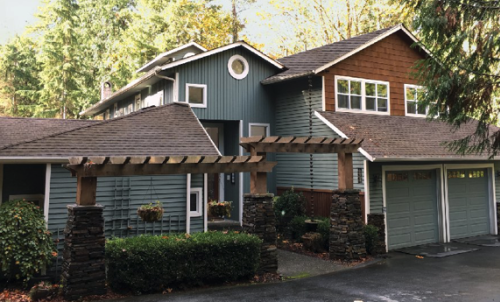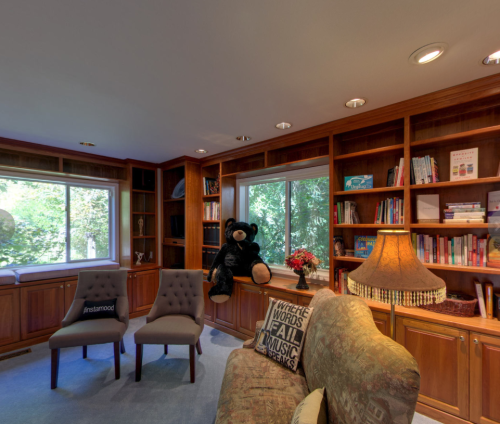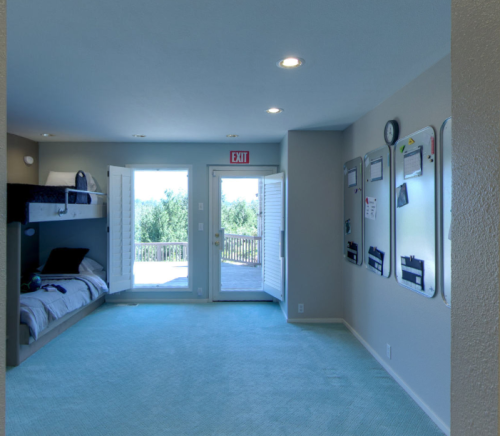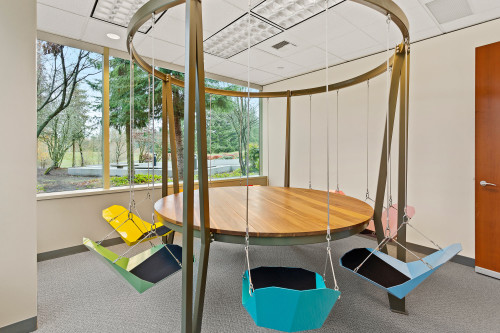






reSTART
Treatment Focus
At this center, you receive personalized care for mental health conditions. They provide therapy and tailor treatment to your unique needs, diagnoses, and preferences.
Primary Level of Care
Offering intensive care with 24/7 monitoring, residential treatment is typically 30 days and can cover multiple levels of care. Length can range from 14 to 90 days typically.
Claimed
Recovery.com has connected directly with this treatment provider to validate the information in their profile.
Treatment Focus
At this center, you receive personalized care for mental health conditions. They provide therapy and tailor treatment to your unique needs, diagnoses, and preferences.
Primary Level of Care
Offering intensive care with 24/7 monitoring, residential treatment is typically 30 days and can cover multiple levels of care. Length can range from 14 to 90 days typically.
Provider's Policy
To verify your insurance, complete our insurance verification form with your insurance company name, policy and group number, and member services phone number. Even if we are out of network, you might still be eligible for partial reimbursement.
reSTART
reSTART
About reSTART
ReSTART is a rehabilitation center for teens and young adults suffering from technology addiction. They treat those who are struggling with video game, screen time, internet gaming, and social media use addiction. ReSTART provides a residential treatment program and helps men and women struggling with co-occurring disorders such as depression, anxiety, attention deficit hyperactivity disorder and attention deficit disorder (ADHD/ADD), post traumatic stress disorder (PTSD), academic difficulties, and relational difficulties. ReSTART uses evidence-based treatments such as cognitive behavioral therapy (CBT), dialectical behavior therapy (DBT), eye movement desensitization and reprocessing (EMDR), family therapy, motivational interviewing, life skills, interpersonal, and mindfulness-based cognitive therapy (MBCT). ReSTART offers separate programs for adults and teens with gender-specific treatments. For adults, reSTART has safe home-based, life-sharing communities, comprehensive assessments, daily workshops, individual therapy sessions, experiential therapies, volunteer opportunities, and connection with nature through hikes and camping. ReSTART has a special program that is 1+ months long called De-Tech Rise Up sober living where clients will live on a working ranch taking care of themselves and animals. They have an intensive retreat stay that is 1+ months that includes intensive clinical therapy sessions, attending workshops and groups, recreation and adventure therapy, and developing life balance plans for sustainable recovery. For adults, they have an Open World program, which is an independent living (3-8 Months stay), and a Sustainability Maintain Momentum program (9-12 Months). For teenagers, they offer a residential program that has year-round enrollment and a summer intensive program. The teenagers program is approximately 12+ weeks long. ReSTART is a private pay program.
ReSTART has 2 housing accommodations that are age and gender-specific. Rise-Up Ranch is the adult residential living. ReStart accommodations for adults offer a warm cabin that is tucked away in the mountains. This location has an on-site gym, outdoor lounge, rustic fire pit, horseshoe, a chicken coop, board games, fire burning stove, and puzzles. Residential rooms are semi-private and have shared bathrooms, and the bathrooms have a large Jacuzzi tub and dual vanities. The teenager accommodations at reSTART are called Serenity Mountain, and it is located on 32 acres of land with breathtaking views of the forest. Serenity Mountain offers an indoor swimming pool, meditation room, full gym, library full of current and classic books, outdoor lounge, fire pit, mountain trails, and a learning center. The teen accommodations are shared bedrooms and bathrooms and are gender-specific.
Center Overview
Treatment Focus
At this center, you receive personalized care for mental health conditions. They provide therapy and tailor treatment to your unique needs, diagnoses, and preferences.
Insurance Accepted
Pricing and Program Length
Estimated Center Costs
The cost listed here ($18,000 - $20,000/month), is an estimate of program cost. Center price can vary based on program and length of stay. Contact the center for more information. Recovery.com strives for price transparency so you can make an informed decision.
Levels of Care




Your Care Options
Specializations
Depression
Symptoms of depression may include fatigue, a sense of numbness, and loss of interest in activities. This condition can range from mild to severe.
Gaming
Compulsive gaming is most often a problem for children and teens. The disorder can affect physical health, sleep, and the ability to focus at school.
Internet Addiction
Internet addiction is common among children teens. This compulsive disorder can damage relationships, school performance, sleep habits, and physical health.
Who We Treat
Adolescents
Teens receive the treatment they need for mental health disorders and addiction, with the added support of educational and vocational services.
Young Adults
Emerging adults ages 18-25 receive treatment catered to the unique challenges of early adulthood, like college, risky behaviors, and vocational struggles.
Men and Women
Men and women attend treatment for addiction in a co-ed setting, going to therapy groups together to share experiences, struggles, and successes.
Approaches
Evidence-Based
A combination of scientifically rooted therapies and treatments make up evidence-based care, defined by their measured and proven results.
Family Involvement
Providers involve family in the treatment of their loved one through family therapy, visits, or both–because addiction is a family disease.
Individual Treatment
Individual care meets the needs of each patient, using personalized treatment to provide them the most relevant care and greatest chance of success.
Twelve Step
Incorporating spirituality, community, and responsibility, 12-Step philosophies prioritize the guidance of a Higher Power and a continuation of 12-Step practices.
Therapies
1-on-1 Counseling
Patient and therapist meet 1-on-1 to work through difficult emotions and behavioral challenges in a personal, private setting.
Play Therapy
This approach is commonly used with children. It incorporates elements of play and self-expression, like boardgames, finger painting, dolls, and blocks.
Rational Emotive Behavior Therapy
A type of cognitive therapy that identifies negative self-defeating thoughts and behaviors, rewriting beliefs to be positive, empowering, and present.
Dance Therapy
This experiential therapy uses dance to improve body awareness, physical health, and social skills.
Eye Movement Therapy (EMDR)
Lateral, guided eye movements help reduce the emotional reactions of retelling and reprocessing trauma, allowing intense feelings to dissipate.
Family Therapy
Family therapy addresses group dynamics within a family system, with a focus on improving communication and interrupting unhealthy relationship patterns.
Motivational Interviewing and Enhancement Therapy (MET)
This approach is based on idea that motivation to change comes from within. Providers use a conversational framework that may help you commit to recovery.
Solution Focused, Goal-Oriented Therapy
A quick goal-oriented therapy that helps patients identify their current and future goals, find out how to achieve them, and empower future problem-solving.
Twelve Step Facilitation
12-Step groups offer a framework for addiction recovery. Members commit to a higher power, recognize their issues, and support each other in the healing process.
Conditions We Treat
Grief and Loss
Grief is a natural reaction to loss, but severe grief can interfere with your ability to function. You can get treatment for this condition.
ADHD, ADD
ADHD is a common mental health condition caused by dopamine imbalance. Common symptoms include inattention, hyperactivitiy, and impulsivity.
Anxiety
Anxiety is a common mental health condition that can include excessive worry, panic attacks, physical tension, and increased blood pressure.
Codependency
Codependency is a pattern of emotional dependence and controlling behavior. It's most common among people with addicted loved ones.
Depression
Symptoms of depression may include fatigue, a sense of numbness, and loss of interest in activities. This condition can range from mild to severe.
Gambling
Excessive, repetitive gambling causes financial and interpersonal problems. This addiction can interfere with work, friendships, and familial relationships.
Gaming
Compulsive gaming is most often a problem for children and teens. The disorder can affect physical health, sleep, and the ability to focus at school.
Internet Addiction
Internet addiction is common among children teens. This compulsive disorder can damage relationships, school performance, sleep habits, and physical health.
Post Traumatic Stress Disorder
PTSD is a long-term mental health issue caused by a disturbing event or events. Symptoms include anxiety, dissociation, flashbacks, and intrusive thoughts.
Substances We Treat
Chronic Relapse
Consistent relapse occurs repeatedly, after partial recovery from addiction. This condition requires long-term treatment.





